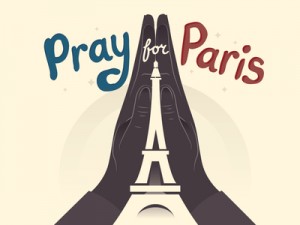Humans have always been curious about what is going on around them. Before the news as we know it today, people used to spread tales of events and things in their close environment or far away for different reasons. The information people shared was used as time-filler, diversion and entertainment. It also provided a kind of security, because having no news about one’s environment would be a cause of anxiety.Historian Pierre Sardella said “without news, man would find himself incommensurately diminished.”
The way of getting the news has been evolving, yet the need to know what is happening is still there. Today though, we have the advantage not to get the news from one source and settle. We can get our information from a wide range of sources that mirror our interests. We also can look for news that match our interests such as sport or world news or domestic or politics or entertainment and so forth. Just like in old societies, many of the news we get today might not seem to us as impartial or fair . Nevertheless, we have the option to look at different news sources, compare content, and get an idea of what is going on relying on our own compilation.
In times of crises, the need for news is at its highest. The lack of details, confusion of the masses and uncertainty of the whole situation make people more eager to know more. When the news of the Paris attacks first broke last Nov. 13, it was not clear what was going on. There was a lot of confusion as the number of victims kept climbing and different sites were being attacked. Parallel to that, news channels decided to cover the developing events live to feed viewers, people who had loved ones in Paris at the time and the general public with information as it was coming. I remember flipping through all news channels to see if any had some new information I was not aware of at the time.
In addition, people on different forms of social media or modern day “word of mouth” were sharing the news. Even people who are not news junkies are forced to see what is going on and what people talk about even when they do not wish that. Pictures on Facebook, Instagram, and twitter to list a few were all full of Eiffel tour pictures and French flag or its colors and many had the sentence “pray for Paris“.
The demand for news at this level is not just a demand,but the news is coming to you and demanding your attention. The scale of the crisis, the unusual occurrence of the attacks as well as the heavy of the media coverage make something important or less so.
To site an example, Syria has been living an unprecedented civil war with millions of civilians displaced, at least 470,000 killed , tens of thousands more wounded in addition to the complete destruction of many area. Yet the interest of media outlets in this human tragedy has diminished. It seems that the subjects need to always be fresh to get the attention of the press. Another example is the refugee crisis that has resulted mainly from the Syrian conflict. Thousands of people hoping to get asylum in Europe decide to go in overloaded boats, ignoring the risks they face and the imminent death many dodge while others including young children do not escape. The picture of the body of a Syrian baby boy brought the world to a stop and shook the humanity of man. The media covered the unfortunate plight of the little boy and his family extensively before the story died. Now, every week dozens of refugees drown at sea, but nobody is covering their stories the same way the little boy in a red shirt and blue shorts was.


Leave a response